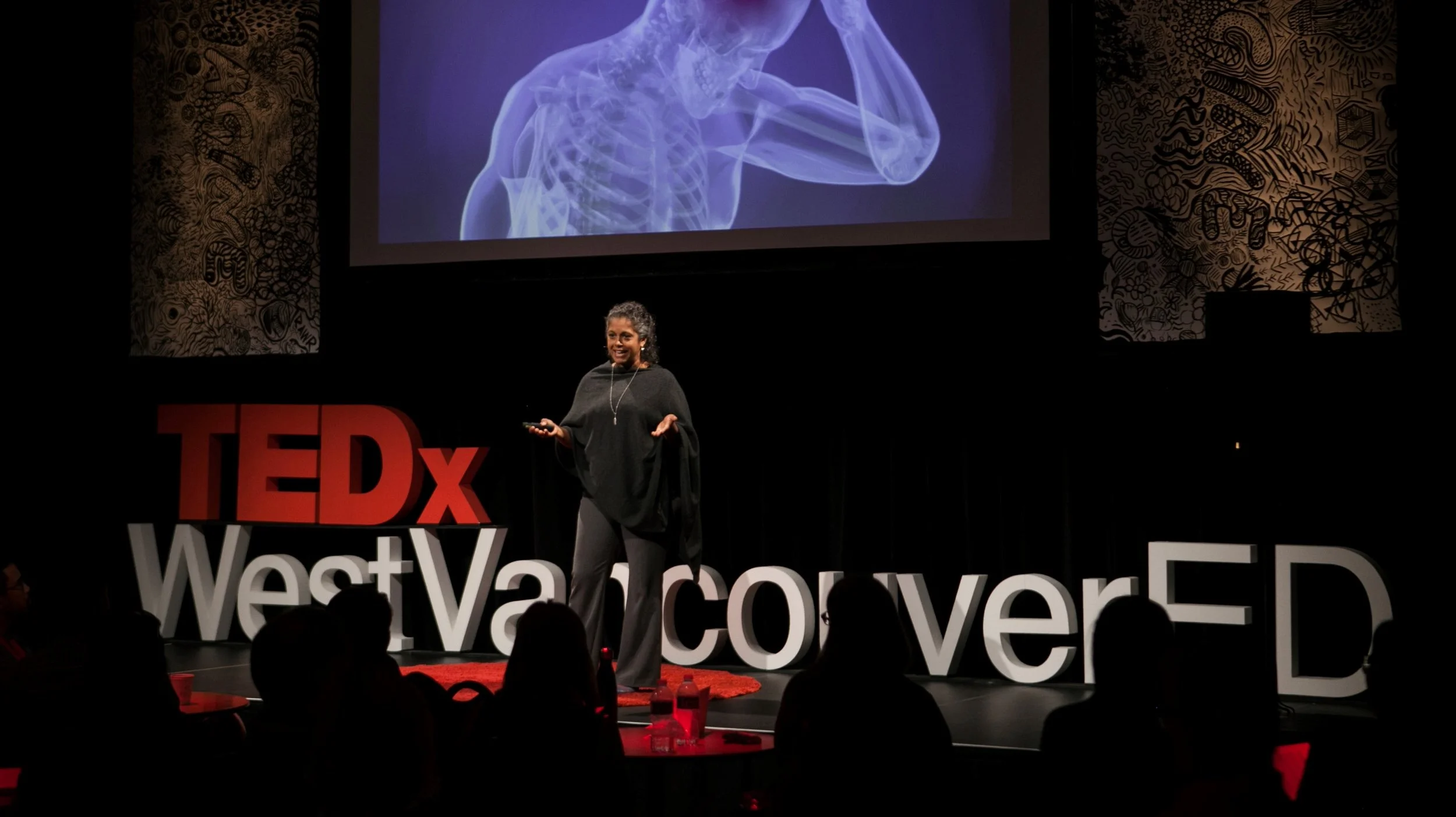RECLAIM YOUR HEALTH & LIFE.
REALIZE YOUR HUMAN POTENTIAL.
WHAT’S NEW?
We’re building the Richer Health Hotel and Wellness Centre, a state-of-the-art destination where people can stay, learn, and heal.
Opening soon on Vancouver Island, BC, it will be Canada’s first chronic disease and mental health reversal destination with a whole food plant based restaurant, healing spaces, and an education and research centre all under one roof. A place where guests come not just for comfort and relaxation but for transformation.
This project is the biggest and most meaningful work we have ever taken on, and it is the culmination of a 20-year vision.
More than just a hotel, it is an engine for economic growth that will drive medical tourism, create jobs, and build strong community partnerships across the Cowichan Valley.
Join the movement. Help us bring this one-of-a-kind project to life.
YOU HAVE THE POWER TO REVERSE AND PREVENT ANY DISEASE.
If there's one thing I know to be true beyond birth and death, it is this: the human body can heal itself of even the fiercest of chronic degenerative illnesses. AKA—lifestyle illnesses—diseases created by the way we live our lives. Our bodies are innately designed to repair, regenerate, and thrive. Optimally. My philosophy of health is that if you are mindful of your body, you will be mindful of the planet. What you do to the planet, you do to your health.
If you eat real, you can heal. If we all eat real, the planet heals.

HELLO!
I’m Nicolette
You might have come across my name, read my book, listened to an episode or two of our Eat Real to Heal podcast, or stumbled upon our social media pages. Regardless of whether you're already familiar with me or not, I’m glad you’re here. Everything we offer is designed to help you reach your optimal health and take back your health and life.
For over two decades, I have helped thousands of individuals worldwide successfully and permanently reverse their chronic diseases and mental health conditions using evidence-based and science-backed methods.
You can reverse your chronic disease. You can get off your SSRIs. You can realize your human potential.
AS SEEN AND FEATURED IN:
PROGRAMS & SERVICES
-

Chronic Disease Reversal
-

Psychedelic Therapy Consultations
-

Online Courses
-

Corporate Wellness Program
-

Speaking
-

Our Non-Profit Society
EAT REAL TO HEAL BOOK
This book is the second edition of Nicolette’s bestselling title, Eat Real to Heal, forwarded by John Lewis | The Badass Vegan. Eat Real to Heal teaches you how to reverse chronic health conditions using food as medicine. By focusing on diet, nutrition, and lifestyle changes, this book shows you how to power up your immune system and give yourself the best chance at beating chronic diseases like diabetes, arthritis, endometriosis, multiple sclerosis, psoriasis, fibromyalgia, other autoimmune disorders, and even cancer.
Available on Amazon, Kindle, Audible, Target, Walmart, eBay, and may also be found at your nearest bookstore.
EAT REAL TO HEAL PODCAST
The Eat Real to Heal podcast features inspiring healing stories, in-depth conversations with leading scientists and doctors, and practical guidance on reversing hundreds of so-called 'incurable' chronic and degenerative diseases. With over a hundred episodes and thousands of listens each month, the podcast reaches audiences in 130 countries and ranks in the top 2.5% globally.
Nicolette’s goal is to bring to light the capabilities we have within ourselves as human beings to sustain our highest wellness potential. We cut through the clutter, providing straightforward information and resources so you can reclaim your life and become the incredible person you were born to be.
“Nicolette, you and your team are awesome! We love your heart and mission, and it aligns perfectly with our philosophy on health, wellness, and clean eating.
Our team has nothing but great things to say about working with you and your team. We greatly appreciate the meals you provided to our Platinum Partners. I can see a long-term partnership.”
TONY ROBBINS, AUTHOR, PHILANTHROPIST, AND THE WORLD’S #1 LIFE AND BUSINESS STRATEGIST"Nicolette Richer not only makes the science of healing and long-term health easy to understand, she breaks it down into very consumable chunks (no pun intended).
Every bit of what she recommends has been thoroughly researched and tested. This is not a fad diet. This is for real! And it works. Her mission to help you heal your body is sincere and from the heart.”
SYLVIA D., AUTHOR, ASPIRING CENTENARIAN, ANIMAL WELFARE ADVOCATE“Building a rich relationship with my food has been the key to freedom from chronic dieting and food addiction for me. Thank you for showing us the many ways we can build bountiful connections between our food and robust health and longevity.”
DOTSIE BAUSCH, VEGAN OLYMPIC MEDALIST, FOUNDER, SWITCH4GOODOUR AWARD-WINNING DOCUMENTARY
Grounded in My Roots was recognized as the “Best Health & Nutrition Film” during the International Vegan Festival 2022 held on November 5th in Ottawa, Canada, and received an official selection in the Maui Film Festival 2022.
This award-winning documentary film shines a light on Nicolette's African roots and how they've brought her to where she is today: an advocate for using food as medicine and preparing to run and bike across Canada to spread her message.
OUR CLIENTS AND STUDENTS GOT RESULTS.
Be our next success story.
-

CHERYL
Multiple Sclerosis
"I was having trouble with my mobility, and my mental health was in disarray. I am like a new person and I owe so much to the Alinker Bike and Nicolette’s program. My husband couldn’t keep up with me. I have been taking it to concerts and the grocery store (keep in mind that I have been housebound for a couple of years) I took it to the coast again for my daughter’s birthday and buzzed around all of the shops and the cheesy wax museum. Before, I’d be down and out for days after most of these activities. Not so anymore. Changing my diet changed my mental state and helped me start recovering. My husband is dumbfounded by my continuing improvement. I took a medication a few years ago for my MS that destroyed me, and with this group, I have completely transformed my life.”
-

AMELIA
Grave’s Disease, Hyperthyroid, Low Energy
"I experienced a remarkable transformation with Nicolette's program. Within weeks, I felt more energized than I had in years, witnessed a reduction in Graves’ disease symptoms, and saw my thyroid issues improve significantly. The course has provided me with numerous benefits, including better sleep, stronger muscles, clearer skin, and a newfound freedom in my relationship with food. I'm grateful for lifetime access to the materials and excited to share my enthusiasm with my 79-year-old dad, who's also experiencing amazing results, with his arthritis reversing, increased vitality, and newfound passion for daily walks and playing the piano again! Eat Real to Heal is truly life-changing."
-

VIOLA
Infertility
“I’m a Tanzanian living in the southern United States, and I've always believed in the healing power of food. The knowledge I gained was truly life-changing. I was amazed by the depth of education and found myself eagerly awaiting each week's new material. The program helped me achieve a new level of energy and mental clarity, and I appreciate how accessible you were to all of your students. As a busy mom who homeschools, I highly recommend this program to anyone looking to improve their health and nutrition. It's the best investment I've ever made. Thank you, Nicolette!”
-

FRANCE
Endometriosis & Chronic Pain
"It's been how many years since doing Nicolette's program, and I'm still healed from endometriosis and chronic pain, and every year I continue to feel better and better. The program is more than just about food; it's helped me grow so much as a person and as a mom, and I'll never stop living this way as my hormones are better regulated now than when I was younger."
-

ANDREA
Digestive Disorders, Depression
"When I joined Richer Health’s program, I was excited to learn more about nutrition, but what I did not expect was to solve most of my health issues. My eyes have been opened to a whole new world, and I never want to turn back. I've learned how to care for myself and how to set my body and mind up for long-term health success. Nicolette is an amazing teacher and leader."
-

JANELLI
Fab to Fit and Eat Real to Heal Student
"Thank you for sharing and inspiring me. I was unable to run without having pain in my knees, and after I became a whole food plant-based eater, that changed. Today I ran 13.1 miles and I got that good feeling that you have of gratitude and willing myself to dream and vision what my body is capable of at my 44."

READY TO RECLAIM YOUR HEALTH AND LIFE?
We offer educational programs and services to achieve our mission of educating 22 million people by 2030 on reversing chronic diseases using FOOD AS MEDICINE. Our programs cater to a diverse range of individuals and organizations.
Our services and offerings are designed for individuals who seek to reverse chronic diseases and reduce their reliance on medications, healthcare and wellness professionals who aspire to become certified Nutrition+Detox Coaches, individuals looking to discontinue SSRIs, companies aiming to boost productivity in the workplace, chefs and aspiring restaurateurs with a vision to change the world, and people striving to attain optimal health freedom.






























